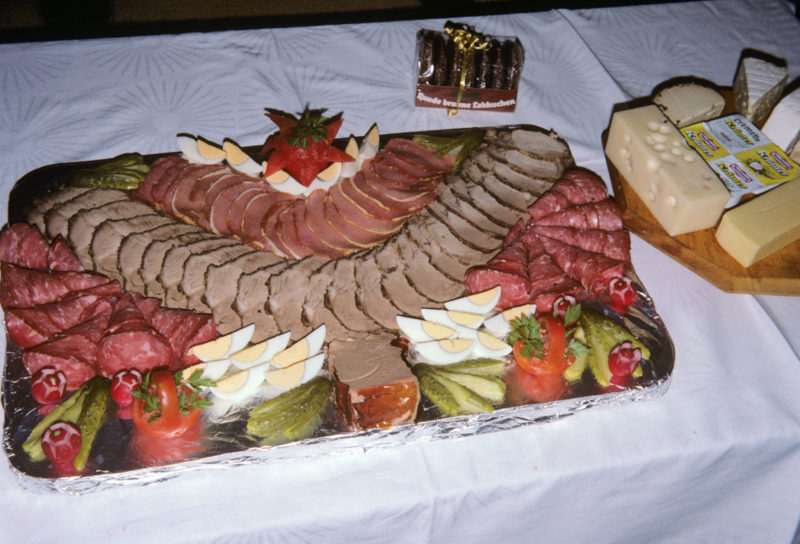These days, it’s common to come across press releases or statements by photographers in which the photographs are described as either an exploration or an investigation. “These photographs explore…” or “These photographs investigate…” This gets me every time. There are a lot of people in this world that can call themselves explorers or investigators. But photographers (or artists in general) are not in that position.
Photographs don’t explore. They don’t investigate. They don’t even ask questions. Instead, photographs are statements. They state facts (or at least look like they do). Given the way the medium works, given all the choices and decisions that go into the making of each and every image, photographs are first and foremost opinions. So when you look at a set of photographs, whether in a book, on a wall, or on some website, you’re not looking at an exploration or investigation. That’s bullshit. You’re looking at a clearly stated opinion.
Another way to approach a set of photographs is to think of them as a proposition — assuming you’re uncomfortable with the idea of opinion. These pictures here, whatever they might be, propose the following about the world, however clear or possibly vague that proposition might be. These pictures here challenge you, the viewer, to question what you believe in, to give you a chance to learn something, or to see the world in a way you have never considered before.
Please note that in the previous paragraph I’m making an assumption, namely that the photographs actually do that: to challenge their viewers. The reality is that many photographers decide not to do that, to instead produce photographs that confirm expectations. Such work has very little, if any, artistic merit. Here, I’m really only interested in discussing photography that aims a little higher.
Now, there is an aspect of investigation or exploration that is part of all photography. When you, as a photographer, work on a project, in all likelihood, you will have to explore or investigate something. To arrive at that final set of pictures you will have to go through a process of discovery, a process of forcefully challenging yourself. If you don’t do that, your resulting pictures are unlikely to trigger a similar reaction in your viewers.
So the photographs aren’t an exploration or investigation. They are the results of an exploration or investigation.
You might wonder whether this isn’t just a game of semantics. But it is not. I firmly believe that however tough the process of making the photographs might have been, as its end result they ought to be treated as something firm, as something that will as forcefully challenge their viewers as possible.
Calling photographs an exploration or an investigation doesn’t do that. Calling your photographs an exploration or investigation really is just an attempt to weasel yourself out of any possible adverse reactions. That can’t be art. For art to truly work, it will have to be willing to fight for what it is, however uncomfortable this might be both for its makers and its viewers.
Of course, the way large parts of the world of art and photography work, that requires some guts. Let’s say you graduate with your MFA, and then you’re reading here that it’s your job to antagonize the very people that might throw some crumbs at you (if you’re lucky)? Well, that’s easy for this writer to demand, isn’t it?
First of all, though, being forceful with one’s work isn’t the same at all as antagonizing people. Being forceful with one’s work means being true to it. If some people indeed feel antagonized by your work and by how they’re challenged — are those the people you want to work with? Are those people your audience?
Second, and this is slightly off-topic, if you’re just out of school, having got so much input concerning how to be that well-formed artist that works uniquely with your own very personal set of ideas and skills and motivations, do you really want to ditch all that the moment you’re out of school?
Given there now is so much photography that’s so wishy washy, so superficial, so, yes, lame, given there’s so much hustling for those few opportunities, is there anything wrong with going back to what the medium really does best?
Photography, however much lipstick you can put on that exploration pig, deals with opinions, with asserting personal visions, with making people uncomfortable, with getting people to come to conclusions they might not like, with all these things that are just so much more forceful and interesting than, well, explorations or investigations.
A different way to look at this would be to say that an exploration or investigation is a process. Photographs themselves aren’t a process, however you present them. Assuming everything is done well, they will trigger the same — or ideally even a different — process in their viewers. They’re achievements of having gone through a process, and as such they are opinions. That’s vastly more than being merely process.
You, the maker, have arrived at this set of photographs, at the end of a possibly lengthy and painful process, so give them the relevance they deserve. Accept that they’re your opinions, that they might challenge people. Don’t sell your achievement short by describing them as “an investigation” or “an exploration”.
(French: Photographie et exploration)
